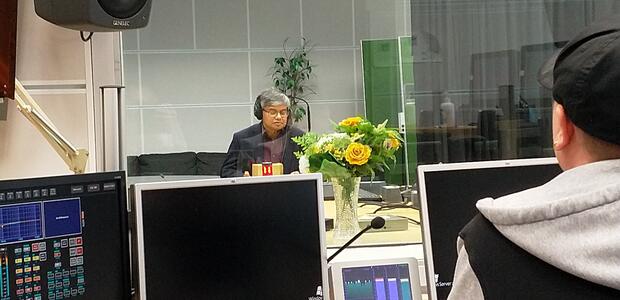Working Paper
Quality of routine essential care during childbirth
Objective: To evaluate the quality of essential care during normal labour and childbirth in maternity facilities in Uttar Pradesh, India. Methods: Between 26 May and 8 July 2015, we used clinical observations to assess care provision for 275 mother...
Blog
Peer influence and human capital accumulation: Evidence from Delhi University colleges
by
Smriti Sharma, Saurabh Singhal, Subha Mani, Utteeyo Dasgupta
December 2017
College is an important milestone in life that is believed to develop several aspects of an individual's human capital, broadly defined to include...
Working Paper
Explaining cross-state earnings inequality differentials in India
Despite the relevance of geographical disparities in India, earnings inequality occurs mostly within states, but with a broad range of variability in its levels. We investigate the sources of such variability using RIF decompositions of the...
Working Paper
Subjective income expectations and risks in rural India
This paper analyses the pattern and determinants of income risk and expectation in rural India. It uses unique primary survey data eliciting subjective income distribution from households in twelve villages in Bihar. It finds that expected future...
In the media
Research Fellow Smriti Sharma’s article on gender equality in India picked up
An article on gender equality in India written by UNU-WIDER’s Smriti Sharma is getting international attention. The piece, originally published in The Conversation, has been picked up by the US edition of The Huffington Post — pointing to global...
Project
Southern engines of global growth
Theme: 2006-07
The project centers on the inter-linkages between the major developing countries of Brazil, India, China and South Africa and the global economy, with a special emphasis on the implications of China’s growth on smaller economies and the rest of the...
Working Paper
Using legal empowerment for labour rights in India
This paper brings labour back into the literature on legal empowerment against poverty. Employing a historical lens, I outline three waves of legal movements. Each wave is distinguished by its timing, the state-level target, and the actors involved...
Working Paper
Cognitive, socioemotional, and behavioural returns to college quality
We exploit the variation in the admissions process across colleges of a leading Indian university to estimate the causal effects of enrolling in a selective college on: cognitive attainment using scores on standardized university exams; behavioural...
Lecture
13th B.G. Kumar Lecture Is India a Land of Opportunity? delivered by Professor Kunal Sen
The recording of this lecture is available here. Professor Kunal Sen delivers the 13th B.G. Kumar Lecture on 'Is India the Land of Opportunity?' at the Center for Development Studies, Thiruvananthapuram, Kerala, India. The lecture begins at 15:30...
Mon, 21 November 2022
CDS, Prasanth Nagar, Medical College P.O.,
Ulloor, Thiruvananthapuram,
Kerala,
India
Past event
Presentation
 Kunal Sen on politicians and their promises in an uncertain world
Kunal Sen on politicians and their promises in an uncertain world
Thu, 15 August 2019
UNU-WIDER,
Katajanokanlaituri 6 B,
Helsinki,
Finland
Past event
Working Paper
Identity and multigenerational persistence
The study aims at bridging gaps in both theoretical and empirical literature pertaining to multigenerational persistence. From a theoretical standpoint, it argues that parental altruism is influenced by social heterogeneity rather than income-based...
Background Note
COVID-19 and socioeconomic impact in Asia
Several countries have enacted lockdown measures in the wake of the COVID-19 pandemic to protect their health systems and reduce the number of mortalities. One of the most extreme national lockdown measures has been taken by the government of India...
Working Paper
What did they say? Respondent identity, question framing, and the measurement of employment
Drawing from two labour market experiments in rural India, we offer insights on the influence of survey design on the measurement of employment. The first experiment contrasts self-reported estimates of employment with proxy-reported estimates from...
Blog
How India’s economy has fared under ten years of Narendra Modi
More than 960 million Indians will head to the polls in the world’s biggest election between April 19 and early June. The ruling Bharatiya Janata...

 Join the network
Join the network






